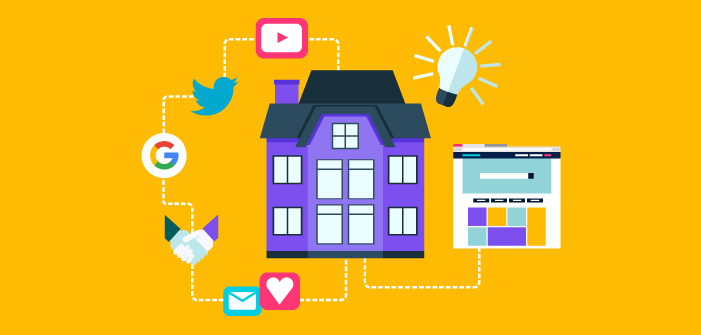In the world of marketing real estate is a st
and-out.
The term residential real estate market may be used in relation to: Marketing to homeowners, so they hire your services to market their house
Reaching out to homeowners and renters to assist them in purchasing a house
You will market your business to potential buyers in order to convince them to purchase your client's home
Additionally, marketing yourself as a realtor estate agent in Los Angeles will be different than marketing yourself in a small city in West Virginia. There isn't one single marketing strategy that will work
for every client. In reality, the methods
for marketing real estate you choose will depend on the area you're in and your market, as well as your ideal clients and your preferences. See the best
see link site tips.
 The Five Phases in Real Estate Marketing
The Five Phases in Real Estate Marketing
Real estate agents aren't able to instantly or magically acquire new clients (if only it were that easy!). Real estate agents must understand that there is a linear and universal process to acquire and keep new customers. It can be broken down into five phases. Lead generation, Lead Nurturing, Customer Servicing, Lead Conversion, Client Retainment.
1. Lead Generation
This involves finding and initiating contact
with prospective real estate clients. While this is an important part of the real estate marketing process , it's often the most talked about. Any of the below methods of marketing can be employed to generate leads for real estate. Each of these strategies is capable of working. However, we suggest restricting your options to three channels. It is also recommended to measure their performance and improving their performance in time.
2. Lead Nurturing
Even if you have an impressive
list of leads that are qualified, you can't expect them to conduct business with you, especially in the event that they don't get to know your business well. A typical internet lead will not buy or rent a house for 6 to 18 months. They turn into customers after 8-12 contacts. Most real estate agents don't follow up with leads, and that's the reason they don't succeed in marketing. Real estate marketing is about creating trust with leads , and looking at the long-term. Think about the perspective of your leads. They might be interested in purchasing or selling a house, but they don't know where or how to begin. While they might find your website and be interested in working with you, they could get distracted by other activities and forget about you or their real-estate-related goals. It is possible to make leads feel more at ease when you interact with them and provide value, but not bragging about your business. And, if well-nurtured leads are nurtured, they'll be much more likely to be converted, which leads us to the next phase. See the recommended
lead generation for real estate agents site info.
 3. Lead Conversion
3. Lead Conversion
Converting a lead occurs when a lead becomes a real estate client (typically through the signing of an agreement to list). It's one of the most rewarding elements of real estate. However, creating new leads will not occur unless you have an approach that creates leads with efficiency and nurtures the leads until they're ready to buy or sell a home. It is possible to help leads convert at a high rate by offering value and building trust before and during the call. To increase the ratio of lead-to-client and increase the likelihood of converting leads, you could provide the lead with an informative video that prepares the lead for their appointment. The video should offer suggestions for interviewing agents and what qualities to consider when selecting the right agent.
Provide the CEO with a testimonial video of clients you have worked with in the past.
Contact the person who leads you with a detailed description and timeline of what it would be like to list their house.
To improve their knowledge, prepare an identical market analysis and/or local market report for your lead. Share it with them during a listing meeting.
4. Client Servicing
This phase is focused on working with customers in order to help them reach their real estate goals. This aspect of real estate marketing is necessary because your goal is to assist clients in a way that makes them desire to recommend your services to their friends and relatives. Referring clients is free and also has the highest rate of conversion since they are directly from trusted, experienced sources.
 5. Client Retainment
5. Client Retainment
A new customer is often five times more costly than kee
ping a customer who is already there (source Elasticpath.com). This is why retaining clients is a crucial aspect of marketing real estate. To keep your clients, make sure you establish a follow-up after sale process. Clients must be contacted within one week, one month and three days following the sale. This allows you to follow up with their progress and make sure they're settled into their new house. If they're experiencing difficulties or have questions, you can assist them.
Client Nurturing. Send valuable content (
emails. Send relevant content (
emails and mailers or invitations) and news, insight etc. frequently.
These two things will help buyers feel more confident when buying a home and keep them in touch with you. They'll be more likely to think of your company when they're looking to sell or purchase a house again, or to recommend someone else who's. Visit
Sold Out Houses today!
[youtube]6A5yhZ8-H8w[/youtube]